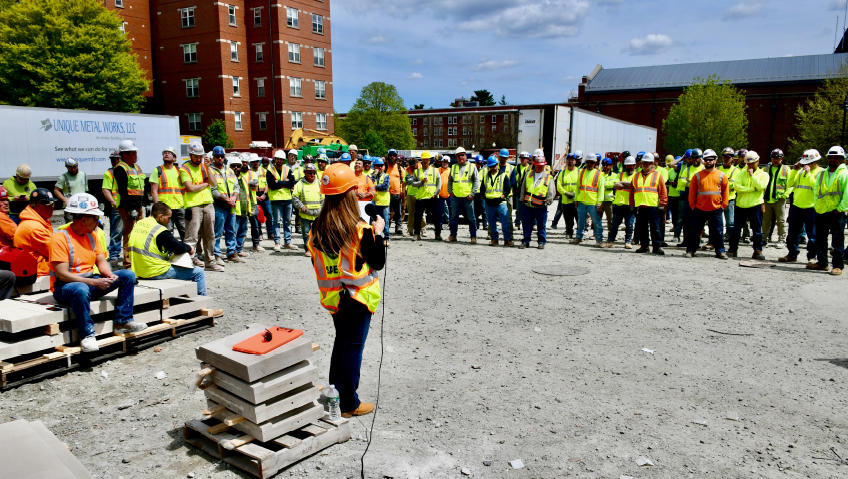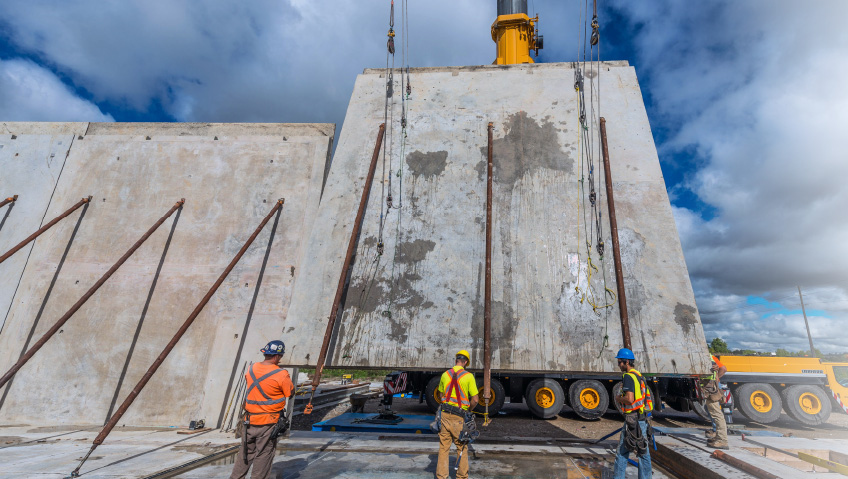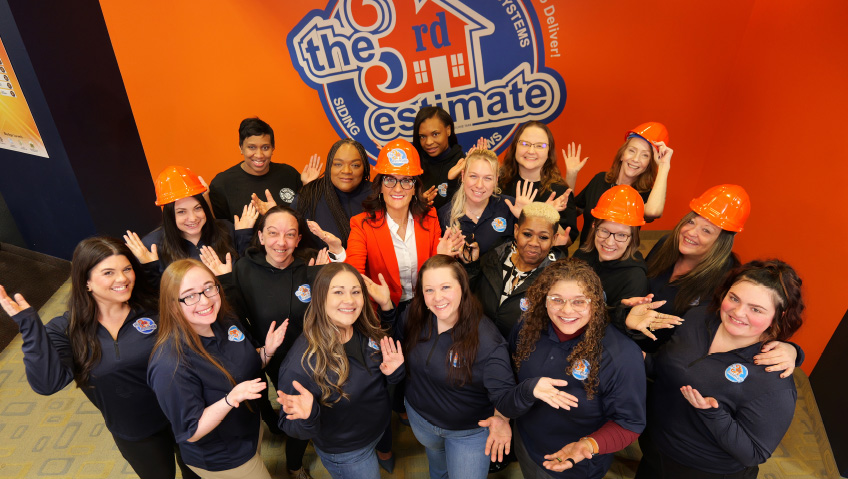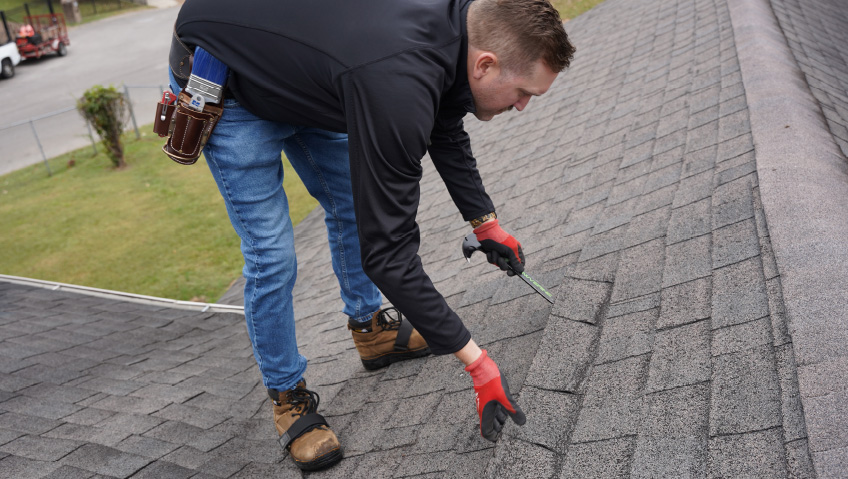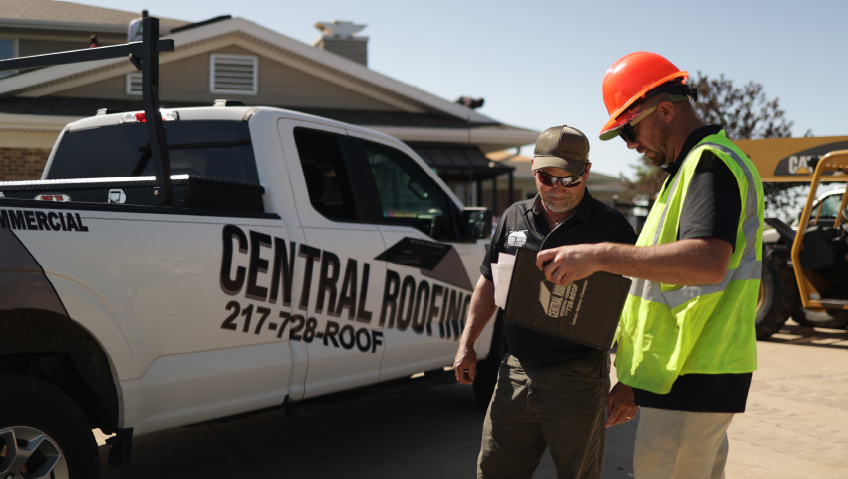In light of the numbers of annual opiate-related deaths of people working in construction, Building Trades Employers’ Association (BTEA) Northeast’s Executive Director Emeritus Thomas J. Gunning saw the need for the next generation to find solutions to the problem. That is how Recovery Week was conceived. Today, his son, Executive Director Thomas S. Gunning, and his team are helping to save and change lives and educate leaders and employees among the over 74,000 construction professionals the union building trades represent in Massachusetts—and their approach is working.
In 2019, BTEA Northeast hosted the first Building Trades Recovery Week. Despite initial success, it was not smooth sailing. COVID-19 prevented the event from taking place in 2021, making this year’s event the third one of its kind.
“The focus is to bring the industry together to combat substance use disorder, improve mental health, and break through the stigma. There is always a big fear that keeps people from coming forward and asking for help,” says Tom Gunning, who is also the third-generation leader of this 100-year-old institution. BTEA Northeast prides itself on being a trusted industry partner of union building trades’ contractors and national associations across New England.
The organization offers a helping hand for those working in the construction industry and provides options for help with addiction issues. Ostracism was once a part of how the industry and society treated people suffering from substance dependency but BTEA Northeast is actively working to change that, dispelling workers’ fears of losing their employment, their families, and the respect of others. As part of this mission, the association enhanced employee assistance programs (EAP) in Boston, Massachusetts.
While in these programs, employees receive treatment from licensed therapists. People also receive secondary help in the form of access to rehabilitation facilities and similar.
“Employees can reach out for help to anyone they want to inside the employee assistance program, which is a third party,” Gunning explains. “The EAP [consists of] licensed clinicians who deal with mental health issues. We want people to know that it is okay to ask for help. It is okay to get that help, and then we will get you back to work when it is safe.”
The awareness-building event was launched on Monday, April 24 at the Sheet Metal Workers Journeyman Apprenticeship Training Center in Boston, Massachusetts, where everyone had the opportunity to listen to guest speakers legendary Major League Baseball star Darryl Strawberry, and Dave Silk, NHL player and member of the men’s team that won a gold medal in 1980 at the Lake Placid Olympics. Chief Executive Officer of Modern Assistance Programs John Christian also shared a few thoughts on his and his team’s work on their employee assistance program that serves many of Boston’s building trades unions and private companies.
Attendees included everyone from top management to entry-level employees, some in recovery, others healthy, and those looking to stay that way because, as Gunning points out, “The disease does not discriminate. They all shared a message of hope to those struggling with any type of mental illness or substance use disorder, and they let [employees] and management know that it is okay to ask for help, and it is okay to receive that help.”
On Wednesday evening, New York Giants’ Tight End Darren Waller shared his powerful recovery journey—from a full-year suspension after multiple failed drug tests to an overdose, to finding recovery and working at a local farmers market all the way back to the NFL. “Unfortunately, the stats are not improving. We still find ourselves in a crisis… All we hear are the headlines in the paper that another hundred thousand people died of overdoses last year,” Gunning says. “No one talks about what they are doing about it or how they are combating it or helping people. We just hear about the deaths.”
To prevent fatalities from opioid overdoses, the association has worked very hard to make Narcan, a naloxone-based nasal spray that is now available as an over-the-counter treatment, available on its job sites. Although there was a lot of red tape to get through and many leaders to convince of its efficacy and of the need within this context, good sense won, and now many lives are being saved.
“My push was that this is no different from a defibrillator. If this is a disease, which it is, and you truly lose the power of choice, that means that somebody is going to get drunk or high against their willpower. So why should we not have it in the first-aid kit just like a defibrillator?” poses Gunning. While there was a lot of resistance at first, he says that approaching the general contractors in person was what tipped the scales in favor of its use in the end.
The first adopters of Narcan on their job sites were John Moriarty and Associates and Lee Kennedy Co, who stocked the medication and trained their safety officers in its safe use. Their pledge caused a domino effect that saw the unions joining the movement by signing up for training alongside business agents, safety agents, and others. To date, Gunning is aware of nearly ten lives saved on job sites in 2019 alone. For BTEA Northeast, just saving a single life is enough to make a difference.
The awareness campaign is not just about men in the construction industry, however. The movement also draws attention to women in the industry and their struggles. To this end, an entire day was dedicated to issues such as postpartum psychosis and other significant issues affecting women in debilitating ways to help shed light, offer support, and remove stigma around such matters. The day’s schedule included breath work, yoga, meditation, and talks that took place in a safe space created to invite women into the conversation about traditionally taboo subjects that affect their quality of life daily.
“With addiction, people can go to meetings and get stuff off their chest because a problem shared is a problem cut in half, but a lot of women do not have that,” says Gunning. “They might be afraid to talk to their friends about their struggles, and it is a similar mindset to when [one is] addicted to drugs and alcohol. There is fear to share,” he says, pointing out how transcending fear can open up a whole new life of healing for those who reach out for help.
His sincerity in his commitment to creating a safe place for women and men to come forward and heal and get their lives back is not only genuine but also inspiring. Gunning describes self-destructive behavior as often rooted in fear of failure—or of success. Despite his fears, the support and positivity shown toward this work from those in the industry has been overwhelming.
“That was the leap that got me to go from a tough-guy mentality to helping others through this project. I tell everyone that the more we talk about our problems the better we feel. Forget about what the other person thinks; it is none of your business what they think,” he says.
The final day of the event was the largest and the most inspiring. Two job sites close to one another were set as locations where speakers spread the message that reaching out for help is safe and the brave thing to do. The overall message of this day also aimed to encourage people to lend a helping hand to those in need instead of shunning or shaming them. Speaking from personal experience, Gunning shared his tale of transformation and how cutting free from the tradition of toxic masculinity and all the misguided beliefs that came with that improved his life.
“I was one of them for a while. You have the big tough-guy personality, and you think, ‘Nothing’s going to affect me. I’m not talking about it.’ Some of us… were taught that way. Sweep it under the rug, right? In reality, it is not good for your mental health. It is better to get it out,” he says. That is part of why he is so passionate about sharing this message of learning compassion for one another.
The other reason BTEA Northeast is putting its heart on its sleeve is to help prevent suicides, because the rate is rising at an alarming rate. As Gunning says, with suicide, far more people than the immediate family are affected. Those subjected to witnessing such violent events are also severely traumatized. One incredible initiative set to change how the industry approaches the subject is wellness trailers, which may soon become commonplace around the world.
These trailers were introduced by New York City-based global construction giant Turner Construction Company, which also recently launched what it calls the Wellness Workdays ‘Wellness Trailer 2.0’ program. The company takes the lead when it comes to allowing its staff and its collaborators’ staff to make better choices for their physical and mental health by providing them with staffed trailers on job sites where they can go for everything from emergency medical assistance to health coaches and care staff.
With the increase in potentially deadly adulterated recreational drugs, the association’s growing concern is legitimate. “I want people to know that help is available if they need it. Another statistic we found is that 229 out of every 100,000 construction workers die from substance use disorder every year. A 2020 study shows that 83 percent of construction workers have experienced a mental health issue. Our industry also has the highest suicide rate with fifty-three suicides per 100,000 workers, which is five times greater than all the other construction fatalities combined,” Gunning says.
It is clear that he is under no illusions about the realities of the situation. He remains grateful and is quick to tell me that Recovery Week would never be possible without the hard work and contributions of his fantastic staff, the building trades, contractors, and everyone who helps to make this a reality.
“This week is not about the statistics; it is about the humans and the heartbeats that make up our workforce. These men and women build the Northeast. Our goals are to let them know it is okay to come forward and to build wellness so that our entire workforce can go home and be healthy and safe at the end of each day,” says Gunning.
With all this work well on its way to changing how the construction industry approaches addiction, BTEA Northeast’s next goal is to help employers transform their safety divisions into wellness divisions by, for instance, making Narcan available on all job sites across the country. To achieve this, the association has professional consultants available who train safety staff in its administration.
“We want to let all these guys and ladies know that we care about them. They are not just there to get a job done. Contractors want me to deliver this message to their workers. They want them to know that if they are struggling, help is available,” says Gunning about the association and its unions’ commitment to creating more of the meaningful connection on which life in the Northeast is built.

